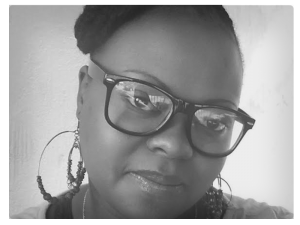‘BIG’ appointment at SPII
Studies in Poverty and Inequality Institute (SPII) – an independent research think tank that focuses on generating new knowledge, information and analysis in the field of poverty and inequality studies – is excited that Nkateko Chauke will be joining SPII as the SADC Basic Income Grant (BIG) Campaign Coordinator.
Coming from a background in advocacy, Chauke has worked as the Regional Networking and Solidarity Organizer at ACTION Support Centre, the African regional hub of a global network committed to positive action in transforming conflict. Her commitment to social justice issues is reflected in her contribution to the coordinating of the Zimbabwe Solidarity Forum, a network of progressive South African civil society organisations that include youth, women, labour, faith-based, human rights and student formations in South Africa and across the region.
After obtaining an honours degree in Political and International Studies at Rhodes University, Chauke joined Médecins Sans Frontières (Doctors without Borders), developing the Stop Stock Outs Project as a Liaison Officer, focusing on community mobilisation, advocacy and leading campaigns targeting medicine stock outs, patient and health rights, patent issues, and access to quality and affordable health care.
At SPII, Chauke will be working as the coordinator of the multination campaign. This project tackles the lack of development southern African countries which are rich in mineral resources and oil reserves. In an attempt to tackle the poverty issues that accompany such underdevelopment, this basic income grant provides an alternative social protection initiative. Chauke’s focus as campaign coordinator is in working on social protection and the promotion of the rollout of a SADC-wide basic income grant to all citizens in SADC.
Chauke’s dedication to human rights and social justice activism makes her a great fit for SPII – and the BIG SADC Campaign, in particular. Chauke looks forward to bringing momentum and energy to the SADC BIG Campaign while ensuring that the rooted advocacy work informs SADC’s development agenda, through raising awareness on social protection – particularly, a SADC-wide basic income grant.
As Chauke states in her op-ed article [hyperlink] for the Daily Maverick last month, “This will enable the continent’s poorest households to better meet their basic needs through providing everyone with a minimum level of income, thus affirming and supporting the inherent dignity for all.”












